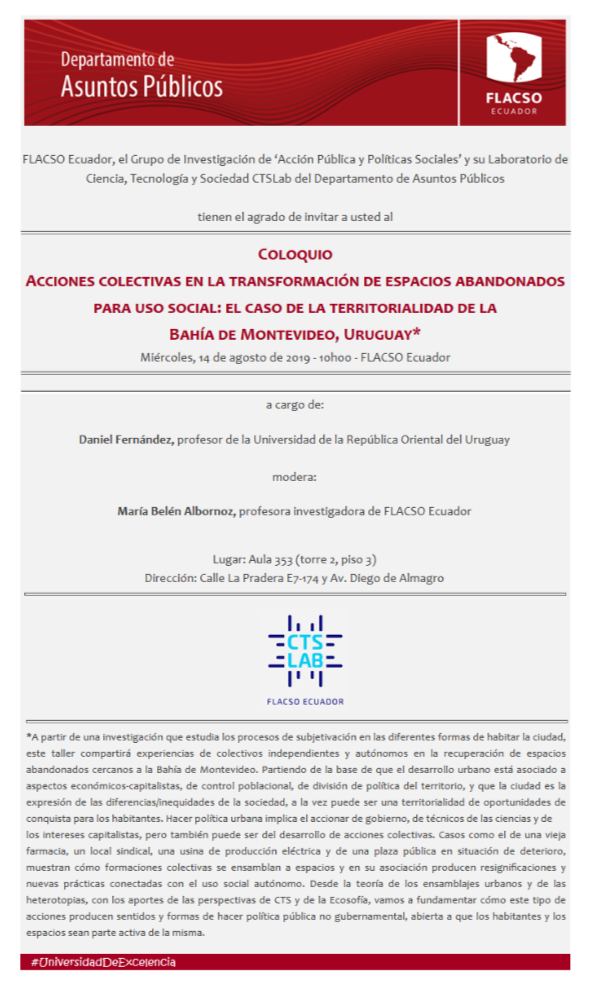The Laboratory of Science, Technology and Society of FLACSO Ecuador is a space of co-creation of public policy and academic STS research.
CTS LAB is dedicated to studying the role of science and technology in contemporary societies to track how they shape our lives and how they open different paths to the future. It emerged as the organized institution of the STS production at FLACSO Ecuador. The Laboratory of Science, Technology and Society of FLACSO Ecuador brings together scholars, practitioners, students, and decision-makers involved in STS studies.
CTS LAB is part of the “Public Affairs Department” and has become a space of co-creation of public policy and academic STS research. It is dedicated to studying the role of science and technology in contemporary societies to track how they shape our lives and how they open different paths to the future. Therefore, the Laboratory is committed to generating knowledge that is relevant for decision-making and public policy design.
The Laboratory is a vibrant research center already working with international organizations, government institutions, and other research centers around the globe. In 2019 CTS LAB is hosting the first STS Summer School in Latin America, the Latin American STS Doctoral School (ESOCITE), and the S.NET Meeting.
CTS Lab sponsors a small number of stipendiary and non-stipendiary fellowships each year who conduct research and receive advance training in STS studies. CTS LAB offers a unique environment in which fellows become an integral part of FLACSO STS community. Fellows meet weekly as a group in order to discuss each other’s research, they also attend monthly STS Colloquiums, and participate in the Laboratory’s major events. It has hosted students from Venezuela, Cuba, Colombia, United States, Argentina, and Germany.
CTS has designed the online graduate program Science, Technology, and Society.
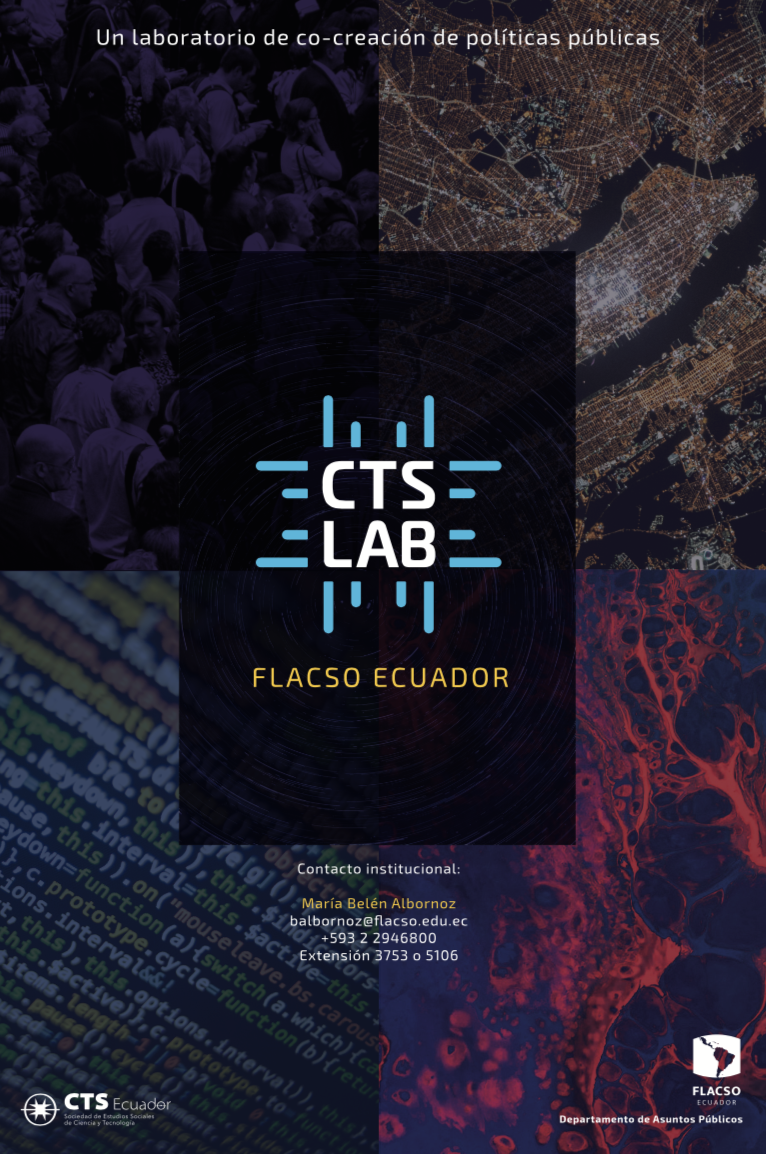
Of strong interdisciplinary vocation its proposal is nourished by STS studies and public policy analysis. Born from this crossroad are the topics that share its local orientation with an international projection: social innovation; big data; artificial intelligence; cities laboratory; and science, technology and innovation policies.

The research proposal of CTS LAB is based on the action-research methodology to co-design public policy adapted to the local context with experimental implementation.
The strength of this approach is that it combines different types of knowledge stemming from diverse disciplines and perspectives held by the actors involved in politics. In this manner, our laboratory is capable of interconnecting problems, identifying critical areas, and designing policies based on evidence.
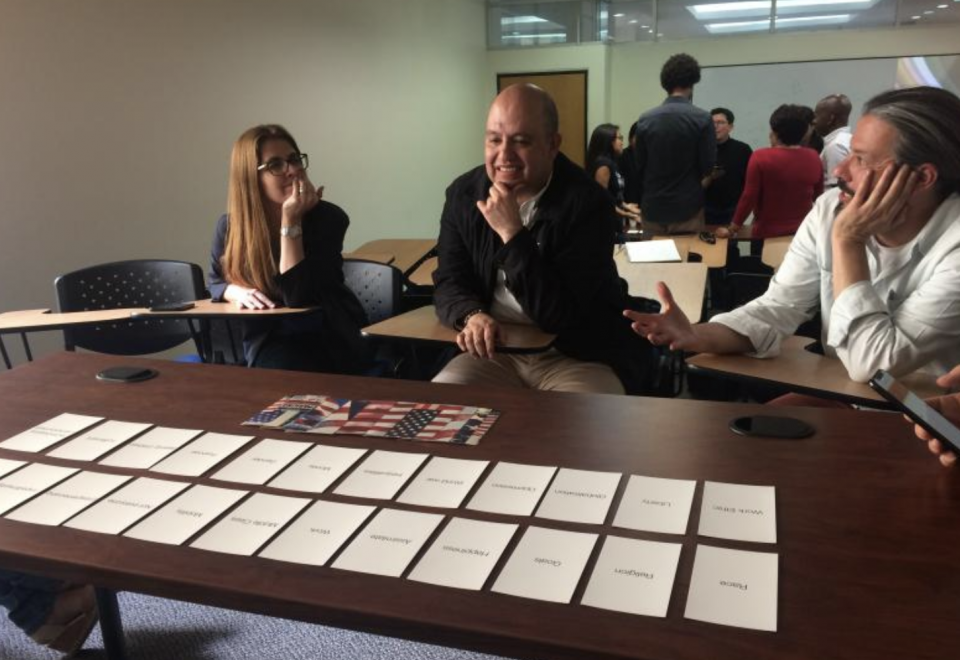
A method consisting of card sets in order to facilitate the development of imagination presented by Prof. Michael Bennett. Pictured from left to right: Dr. María Belén Albornoz, Research Professor and CTS Lab Coordinator, FLACSO Ecuador; Prof. Javier Jiménez Becerra, Professor of Social Sciences at the Universidad de los Andes; and Prof. Jorge Núñez, Visiting Professor, Center of Interdisciplinary Ethnography, University of Cuenca and FLACSO. Photo Credit: Gaudys L. Sanclemente
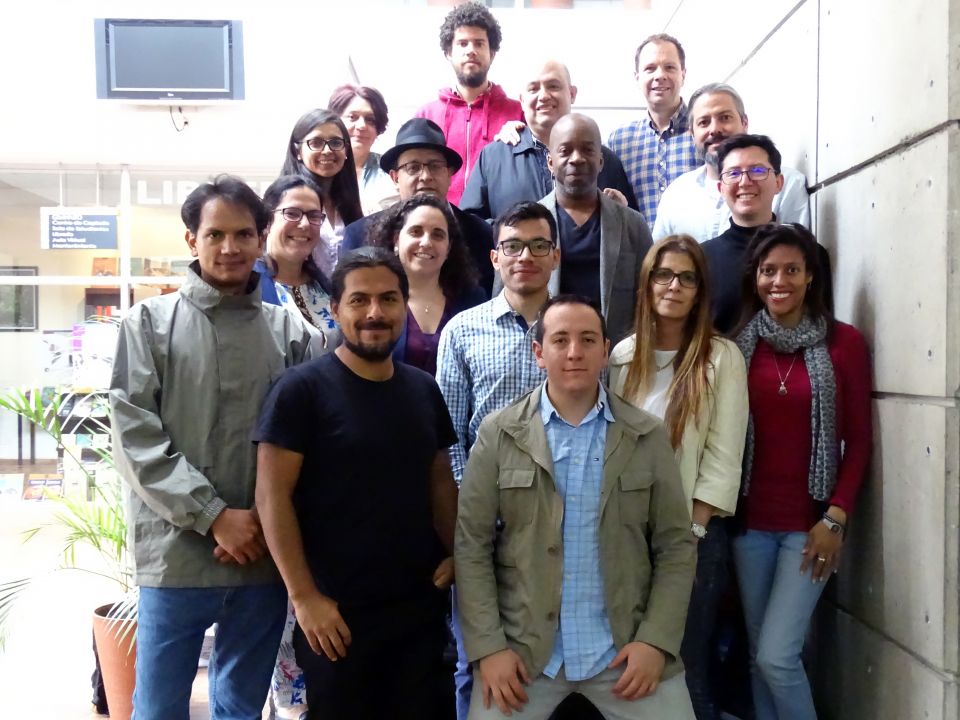
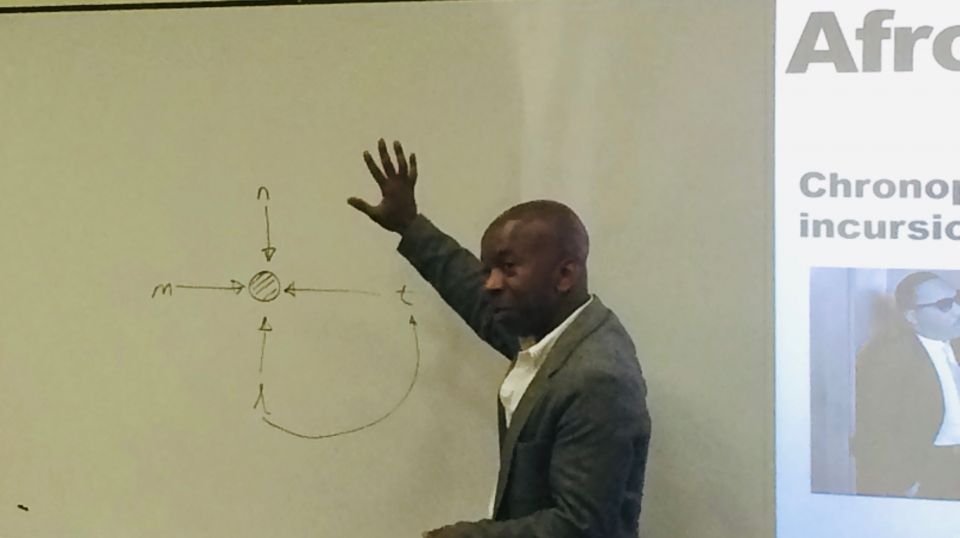
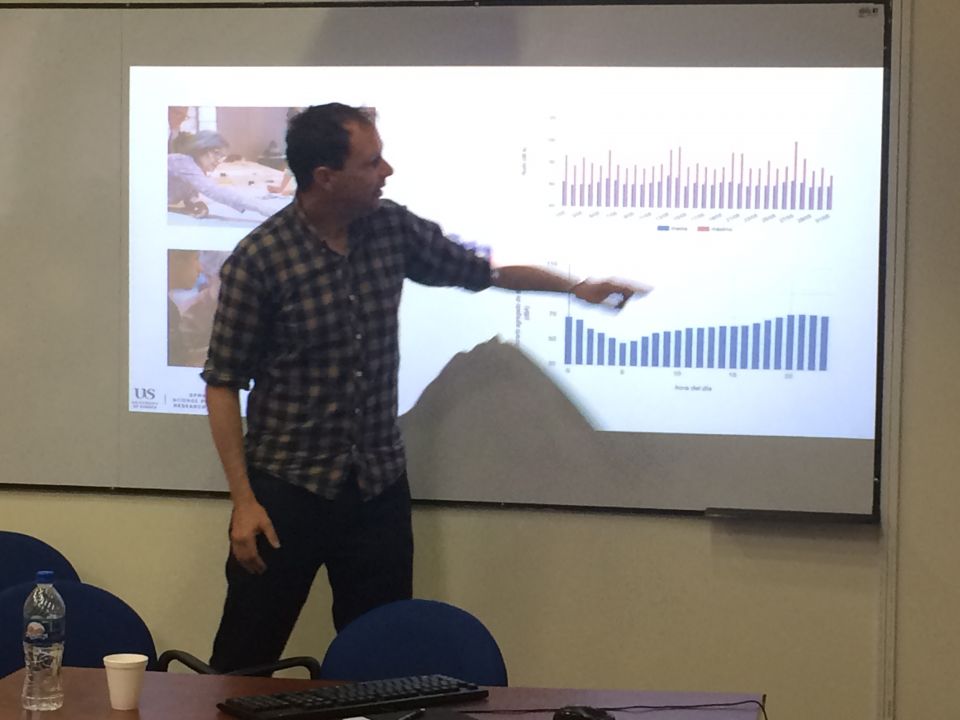
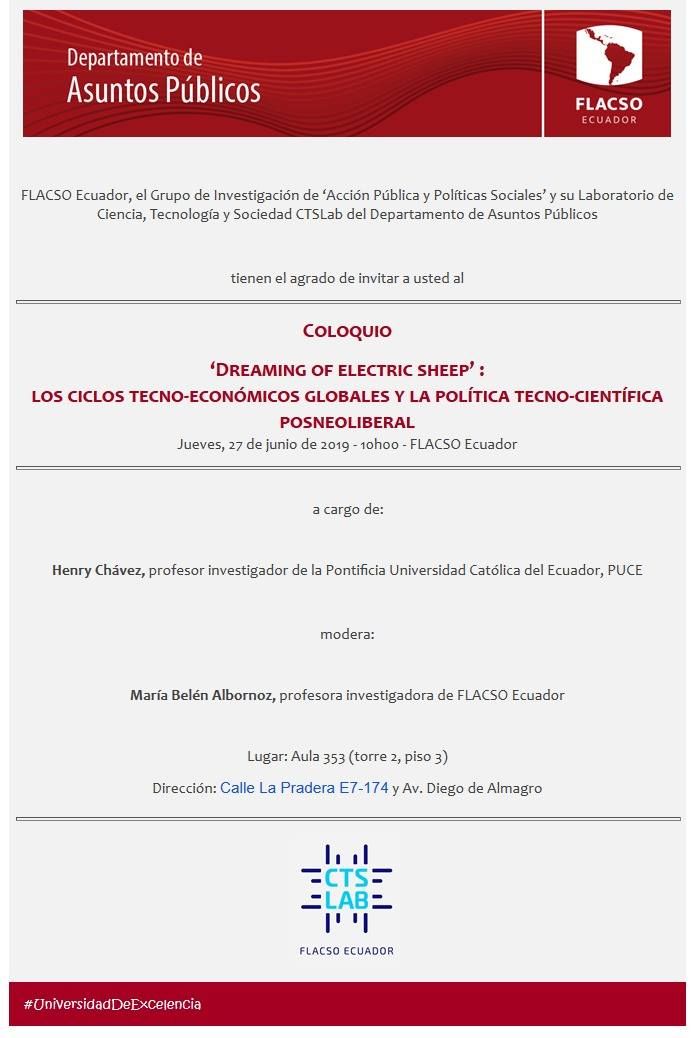
Abstract of the First STS Colloquium: Based on an interpretive model inspired by neo-Schumpeterian hypothesis about the relationship between economic cycles and technological transformations, the presentation attempted to establish the links between the development process of the scientific-technological field of a peripheral country such as Ecuador and the great cycles of techno-economic transformation of the world system. According to the theoretical scheme used, between the mid-eighteenth century and the beginning of the twenty-first, six of these cycles were recorded, the last of which began its deployment phase with the global crisis of 2008. The presentation included an explanatory outline of the process of peripheral integration of Ecuador in the world system and its relationship with the different waves of scientific and technological development that have accompanied this process. The scheme was tested using as a case study the policy of science, technology, and innovation implemented by the Ecuadorian government between 2007 and 2017, the presentation focused on the three most important programs of this policy (the reform of higher education, the scholarship program for study abroad, and the Yachay project), its scope and limitations. Based on this exercise, the presenter will try to identify the points of convergence and divergence between the global and local cycles of techno-economic transformation; as well as, the limitations and contradictions of the "post-neoliberal" modernization project implemented by the previous government.
